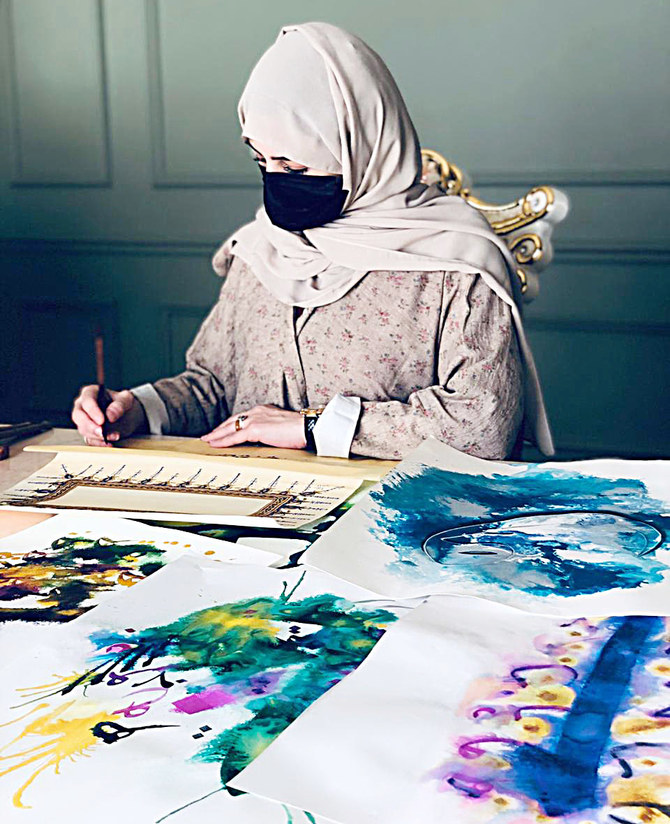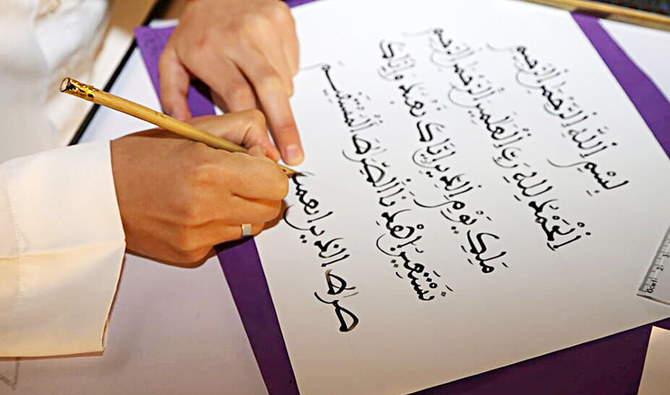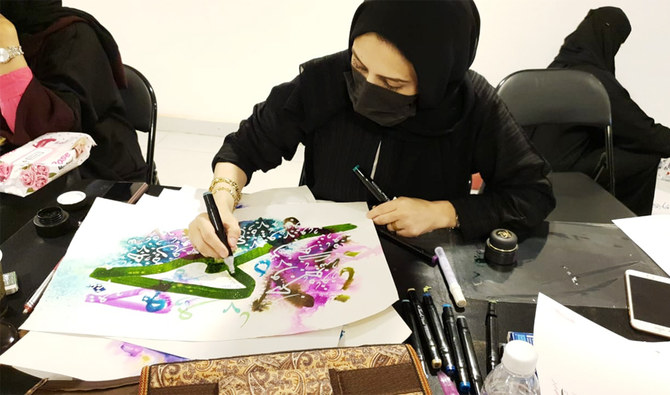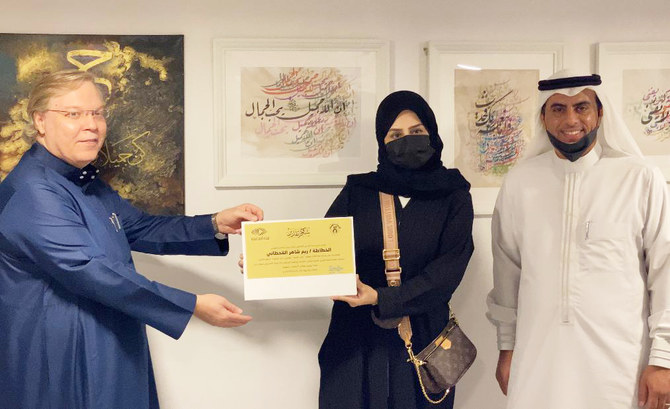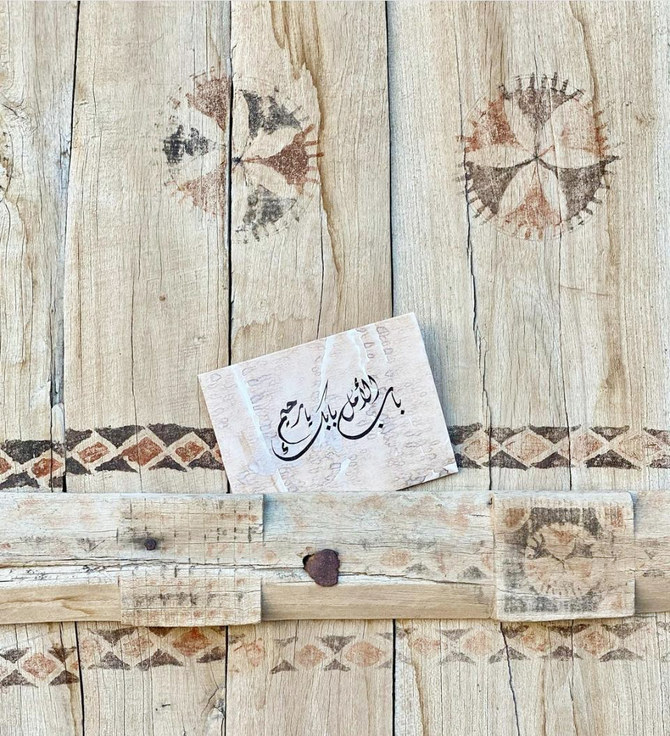MAKKAH: With the Kingdom’s declaration of 2020 as the Year of Arabic Calligraphy, the art form is seeing a revival.
Several Saudi cities are offering sessions for both men and women, allowing participants to reconnect with the heritage of Arabic calligraphy, which continues to gain popularity among art enthusiasts. Other platforms to receive and support ideas and submissions have also been launched.
When asked about the reason why many women are currently interested in reviving Arabic calligraphy, calligrapher Reem Al-Qahtani told Arab News: “It is due to their love for beauty.”
Aesthetics, however, were not the sole motivation. Those who take up calligraphy soon learn that it is “characterized by order, balance and proportions” and that it requires patience to execute.
It is a priority for us, the people of the Two Holy Mosques, to preserve this great heritage.
Reem Al-Qahtani
Interaction between men and women has increased during the Year of Arabic Calligraphy initiative, Al-Qahtani said, especially due to the diverse activities that were made available to all segments of society.
“This passion will surely remain with all those who had the honor of learning about Arabic calligraphy and Islamic patterning,” she told Arab News.
On how to preserve this heritage among young people, Al-Qahtani pointed out that Arabic calligraphy is historically related to writing revelations.
Before becoming a form of art on its own, calligraphy was a tool of documentation, she explained.
“It is a priority for us, the people of the Two Holy Mosques, to preserve this great heritage. We should learn it and pass it down to younger generations so that they may take pride in our long-standing Islamic values,” said the calligrapher.
She called on all government and private institutions to launch various activities and initiatives in order to boost the role of Arabic calligraphy.
Grand Mosque calligrapher Ibrahim Al-Rafei told Arab News that “in light of modern technological development, the importance of Arabic calligraphy resides in the fact that it is considered a means of communication that an increasing number of people are learning despite all the rapid advancements.”
FASTFACT
The art of Arabic calligraphy developed from two major styles: Naskh and Kufic. Originating in the Iraqi city of Kufa in or around the 7th century CE, Kufic is the earliest example of a universal calligraphic style.
Al-Rafei added that no matter how old the calligrapher’s tools are, he can integrate them with computer technology.
While computer letters are standardized, however, the calligrapher’s letters are his alone. “The calligrapher has his own imprint. His lines express his identity, personality, uniqueness and pride as he mixes classical writing with the era’s spirit and aesthetics.”
Writing in Arabic preserves the language and continuity of its usage as a means of communication, said Al-Rafei, adding that one of the language’s most important tools, aesthetically and visually, is Arabic calligraphy, which even catches the eyes of non-Arabic speakers.
He stressed the importance of teaching Arabic calligraphy to younger generations, as it boosts their confidence and pride in Arab culture.
“Throughout my 32 years of experience in learning Arabic calligraphy, starting from the Grand Mosque, where I have been learning for the past 17 years, all segments of society have demonstrated a passion for learning the different styles of Arabic calligraphy,” he said.
Aesthetically, Arabic calligraphy develops the student’s artistic taste.
Ibrahim Al-Rafei
He added that some of the students are highly determined, and this gives them great writing skills as well as the discipline necessary to pursue the art form.
“Aesthetically, Arabic calligraphy develops the student’s artistic taste,” the calligrapher added.
Calligraphy is a social experience, Al-Rafei explained, as the art brings people together, with many asking the artist to write out their names or expressions of their choice.
“This is what connects a calligrapher to others; the more he masters his craft, the more he becomes connected to all groups in society,” he added.


